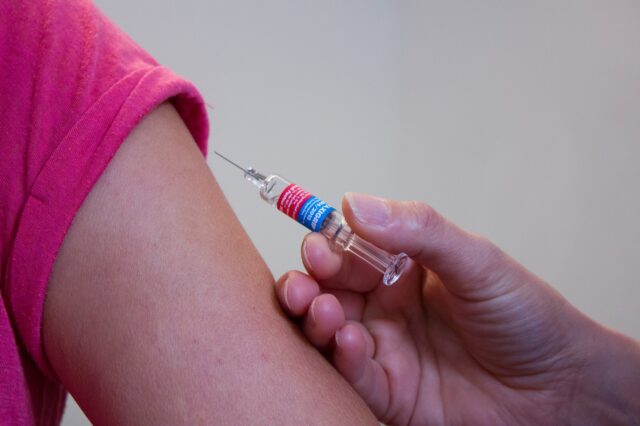6 infant vaccines that could save your child’s life

Infant immunization is often a controversial topic, but UF Health providers agree: Vaccines are safe, effective, and an important part of protecting your child, your family, and your community from communicable disease.
Immunization is especially important for children who attend playgroups or daycare. “The likelihood of coming into contact with certain diseases increases for children in daycare and school,” says Molly Posa, M.D., assistant professor of pediatrics at the University of Florida. “It’s important for children to receive the recommended immunizations prior to this increased risk.”
By learning more about the vaccines and how they are protecting your child, you may feel more at ease during vaccinations. Here are six of the most common infant vaccines and how they can save your child’s life.
Hepatitis B Vaccine
- Also known as: HepB
- Minimum Age: birth
The HepB vaccine protects against Hepatitis B is provided to all newborns before hospital discharge. Other doses are given at two months and six months, normally at a well-child checkup.
Rotavirus Vaccine
- Also known as: RV
- Minimum age: 2 months
RV protects against Rotavirus, a virus that causes diarrhea, vomiting and fever in babies and young children and can lead to dehydration, and given at two months, four months and depending on the type of vaccine used, six months.
Diphtheria and tetanus toxoids and acellular pertussis Vaccine
- Also known as: DTaP
- Minimum Age: 6 weeks
DTaP protects against diphtheria, pertussis and tetanus, which are serious diseases caused by bacteria. Infants and children receive five total doses between the ages of two months and four to six years of age.
Hib Vaccine
- Minimum Age: 6 weeks
Haemophilus influenzae type B is a disease that usually effects children under 5, and before the vaccine became available, was the leading cause of bacterial meningitis. The disease can also cause pneumonia and blood infections. Infants are vaccinated at two months, four months, and 12 to 15 months of age. An additional dose may be given at six months of age depending on the brand.
Pneumococcal vaccines
- Also known as: PCV13 and PPSV23
- Minimum age: 6 weeks for PCV13 and 2 years for PPSV23
This series of vaccinations protect children against meningitis, an infection that causes swelling and irritation to the membranes of the brain and spinal cord. Infants are vaccinated at two months, four months, six months, and 12 to 15 months of age.
Polio vaccine
- Also known as: IPV
- Minimum age: 6 weeks
Although polio has been eliminated from the U.S., it is still common in some parts of the world, so it is imperative that we continue to vaccinate our children until the disease is eliminated entirely. Infants are vaccinated at two months, four months, and between six and 18 months. A booster shot is given between four and six years.
Not all children should receive immunization, including immunocompromised infants or infants who are allergic to any component of the vaccines above. The CDC includes a child catch-up schedule for children who start late or are more than one month behind schedule. Your physician can help guide you through the infant immunization schedule and provide education and support.
Learn what to expect at a well-child checkup and review the entire vaccination schedule from birth to 18 years old on Vaccines.gov.